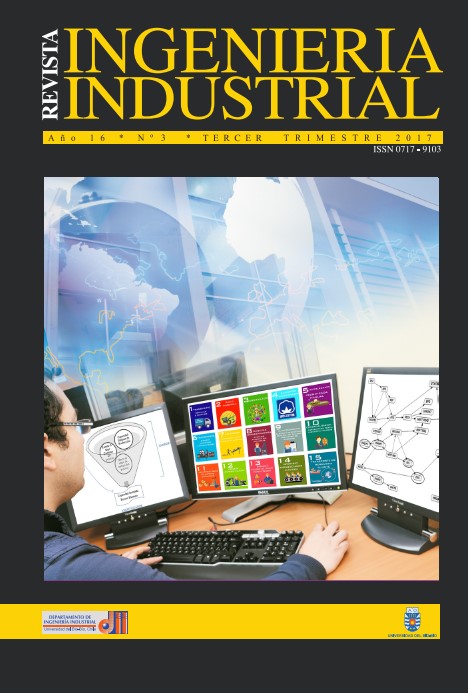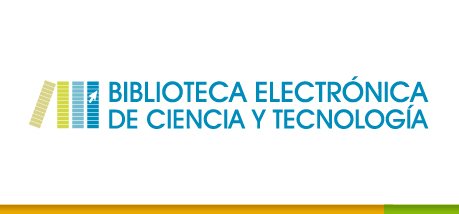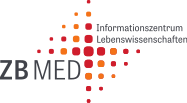Gas natural licuado para el transporte marítimo de corta distancia: estudio mediante redes bayesianas de las variables económicas
DOI:
https://doi.org/10.22320/S07179103/2017.15Palabras clave:
Redes bayesianas, gas natural licuado, GLN, transporte marítimo de corta distancia, Área de Control de Emisiones, Áreas de Control de Emisiones de SulfurosResumen
En los últimos tiempos las implicaciones de la reglamentación medioambiental en el sector transporte han ido en aumento, la Comunidad Europea se ha marcado como objetivo llevar a cabo una autentica estrategia para racionalizar la política de transportes, así ha ocurrido también en el transporte marítimo, con especial incidencia ante la posibilidad de ampliación de las zonas de navegación ECAs (Emission Control Area) en todo el mundo y las nuevas normativas de reducción de contenido de azufre de la Unión Europea. Este marco de trabajo en el que opera el sector portuario está favoreciendo la consolidación del GNL (gas natural licuado) como un combustible alternativo para el transporte de corta distancia o short sea shipping.
El estudio que se presenta pretende analizar de la implicación de variables económicas incidentes en la elección del gas natural licuado como combustible en el transporte marítimo de corta distancia mediante el uso de redes bayesianas. La metodología empleada ha hecho necesaria la construcción de una red bayesiana, empleando un total de 35 indicadores, los cuales se han clasificado en 5 categorías distintas. Analizando dicha red se ha obtenidos que las variables “Capacidad de las terminales de regasificación de GNL en construcción” y “Distribución modal de transporte de carga por aguas continentales” son los dos nodos raíz de la red, de forma que ambas categorías resultan significativas a la hora de decidir la
implementación del gas natural como combustible. Por el contrario, las categorías de medio ambiente y energía y de población y condición social son las más dependientes, al ser las categorías más alejadas de los nodos raíz de la red.
Descargas
Citas
ALMAZÁN, J. L.; PALOMINO, M. C.; GONZÁLEZ, N.; SOLER, F. Y IRIBARREN, E. Estimation of Spanish bunkering at EU level of SECAS. Research Conference In Technical Disciplines, Section Transport and Logistic, 2013, 136-141.
BRYNOLF, S.; ANDERSSON K. E. Y FRIDELL, E. A comparative life cycle assessment of marine fuels: liquefied natural gas and three other fossil fuels. Proceedings of the Institution of Mechanical Engineers, Part M: Journal of Engineering for the Maritime Environment, 2011, 225(2), 97-110.
CÁNOVAS, B. Short Sea Shipping, una estrategia Europea. Documento de Opinión, No. 70. Instituto Español de Estudios Estratégicos. 2015.
CASTILLO, E., GUTIÉRREZ, J.M. and HADI, A.S. Expert Systems and Probabilistic Network Models. Springer Verlag. 1997
COMISIÓN EUROPEA. Libro Blanco, la política europea de transportes de cara al 2010: la hora de la verdad (pp. 11- 53). COM (2001) 370 final. Bruselas: Commission of the European Communities.2001
COMISIÓN EUROPEA. Libro Verde, estrategia europea para una energía sostenible, competitiva y segura (pp. 3- 19). COM (2006) 105 final. Bruselas: Commission of the European Communities. 2006
COOPER, G. F. and HERSKOVITS, E. A Bayesian method for the induction of probabilistic networks from data. Machine learning, 1992, 9(4), 309-347.
CORBETT, J. J.; FISCHBECK, P. S. and PANDIS, S. N. Global Nitrogen and Sulfur Inventories for Oceangoing Ships. Journal of Geophysical Research, 1999, 104(D3), 3457-3470.
CORBETT, J. J. and KORHLER, H. W. Updated Emissions from Ocean Shipping. Journal of Geophysical Research, 2003, 108(D20), pp. 4650.
CORBETT, J. J.; WANG, H. and WINEBRAKE, J. J. The Effectiveness and Costs of Speed Reductions on Emissions from International Shipping. Transportation Research Part D:
Transport and Environment, 2009, 14(8), 593-598.
DEVANNEY, J. CO2 Emissions from Shipping: The Case for Taking our Time. 2010. Disponible en: http://www.c4tx.org/ctx/pub/take_time.Pdf
DEVANNEY, J. Y BEACH, S. Detailed Studies of the Impact of Eedi on Vlcc Design and co2 Emissions. Center for Tankship Excellence. 2010. Disponible en: http://www.c4tx.org/ctx/pub/eedi_vlcc.pdf
DEVANNEY, J. Y BEACH, S. Efficient, Safe Reduction of co2 Emissions from Shipping. Center for Tankship Excellence. 2010. Disponible en: http://www.c4tx.org/ctx/pub/tax_vs_ets.pdf
ENDRESEN, Ø., et al.. The Environmental Impacts of Increased International Maritime shipping, Past Trends and Future Perspectives. Global Forum on Transport and Environment in a Globalising World, 2010, Guadalajara, Mexico.
FLORES, F. S., CANCELAS, N. G., ORIVE, A. C., GÁRATE, J. L. A., & MONZÓN, M. D. C. P. Diseño de un modelo de planificación de zonas de actividades logísticas mediante el empleo de redes bayesianas. Revista ingeniería industrial, 2013, 12(1), 7-26.
GRITSENKO, D. Y YLISKYLÄ-PEURALAHTI, J. Governing shipping externalities: Baltic ports in the process of SOx emission reduction. Maritime Studies, 2013, 12(1),10
GULLBERG, M. Y GAHNSTRÖM, J. North European LNG Infrastructure Project: A feasibility study for an LNG filling station infrastructure and test of recommendations. Draft Feasibility Report. Trans-European Transport Network, 2011
HECKERMAN, D. A tutorial on learning with Bayesian networks. Innovations in Bayesian networks, 2008, pp. 33-82. Springer Berlin Heidelberg.
LASKEY, K. B. Sensitivity analysis for probability assessments in Bayesian networks. In Proceedings of the Ninth Conference on Uncertainty in Artificial Intelligence, 2014
LIZAZO TORRES, D.; DELFOR MEYER, R. AND TORRES CÁRDENAS, V. Minería De Datos En La Encuesta Permanente De Hogares 2009, Universidad Nacional Del Litoral, Argentina. Revista Ingeniería Industrial, 2011, 10(1), 19-28.
LLOYD, M. Regional action for logistical integration of shipping across Europe (realise). Workpackage 4. Task 4.1 multi-modal pricing and costing analyses inception report, 2003
MOLINA SERRANO, B., GONZÁLEZ-CANCELAS, N, SOLER-FLORES, F. Y CAMARERO ORIVE, A. Estudio de las relaciones entre variables de transporte y comercio internacional y variables incidentes en la elección del uso del gas natural licuado para Short Sea Shipping mediante un análisis con redes de creencia. Ingeniería Civil, ISSN: 0213-8468, 2017, 188, 57-66
PEARL, J. The Solution for the Branching Factor of the Alpha-Beta Pruning Algorithm and its Optimality. Communications of the ACM, 1982, 25(8), 559-564.
PEARL, J. Probabilistic reasoning in intelligent systems: Networks of plausible reasoning, 1988.
PEARL, J. Bayesian networks. Department of Statistics, UCLA, 2011
PSARAFTIS, H. N. Y KONTOVAS, C. A. Balancing the Economic and Environmental Performance of Maritime Transportation. Transportation Research Part D: Transport and Environment, 2010, 15(8), 458-462.
PUGA, J. L., GARCÍA, J. G., DE LA FUENTE SÁNCHEZ, L., & DE LA FUENTE SOLANA, E. I. Las redes bayesianas como herramientas de modelado en psicología. Anales de psicología, 2007, 23(2), 307-316.
REALISE. Regional Action for Logistical Integration of Shipping across Europe. The Alliance of Maritime Regional Interests in Europe (AMRIE), GTC2-2000-33032, 2002. Disponible en: http://www.realise-sss.org
REALISE. The Alliance of Maritime Regional Interests in Europe, (AMRIE), Final Report No. GTC2-2000-33032, 2005. Disponible en: http://www.realise-sss.org
RECORDIT. Actions to Promote Intermodal Transport: Final Report No. WP9. 2003. Disponible en: http://www.recordit.org/
RODRÍGUEZ, D., & DOLADO, J. Redes Bayesianas en la Ingeniería del Software.2007
SHACHTER, R.D. Probabilistic Inference and Influence Diagrams. Probabilistic inference and influence diagrams. Operations Research, 1988, 36(4), 589-604
VASSALLO, W., ET AL. Regional action for logistical integration of shipping across Europe (Realise). 2004.Disponible en: http://www.realise-sss.org/
VERBEEK, R.; KADIJK, G.; MENSCH, V. P.; WULFFERS, C.; BEEMT, B. V. Y FRAGA, F. Environmental and Economic aspects of using LNG as a fuel for shipping in the Netherlands. TNO report. 2011
WEI Z., XU H., LI W., GUI X., WU X. Improved Bayesian Network Structure Learning with Node Ordering via K2 Algorithm. Huang DS., Jo KH., Wang L. (eds) Intelligent Computing Methodologies. ICIC 2014. Lecture Notes in Computer Science, 2014, 8589. Springer, Cham
Descargas
Publicado
Número
Sección
Licencia
Derechos de autor 2023 Revista Ingeniería Industrial

Esta obra está bajo una licencia internacional Creative Commons Atribución 4.0.
Revista Ingeniería Industrial by Revista Ingeniería Industrial is licensed under a Creative Commons Reconocimiento 4.0 Internacional License. Creado a partir de la obra en revistas.ubiobio.cl/index.php/RI/. Puede hallar permisos más allá de los concedidos con esta licencia en http://revistas.ubiobio.cl/index.php/RI/about/

















